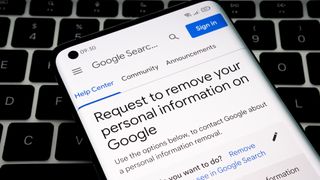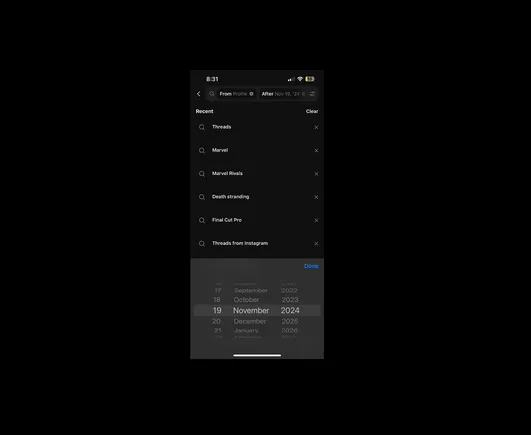The amount of personal information readily available on the internet has increased drastically over the past few years, with advertisers demanding every last bit of our data to target us with ads and content. Plus, advancements in technologies such as AI have only added fuel to the fire by making it easier for cybercriminals to harvest data and commit online scams.
Amidst growing concerns about online privacy, data removal services offer a glimmer of hope. These are third-party tools that help individuals track down their private data on online platforms and databases (including data broker sites) and get them removed, allowing them to reclaim their privacy and curtail their digital footprint.
Read on to find out all about data removal services, including how they work and why people would want to use them, as well as some of their limitations. I'll also list some alternatives and healthy online practices that you can follow to crank up your digital privacy instantly. However, if you've already made up your mind about using a data removal service, here's our top recommendation right away.
How data removal services work
Although the exact process of a particular data removal service might be slightly different from another, all these services follow more or less the same general process. This includes, first and foremost, scanning a comprehensive list of websites and data brokers to find out which ones have the data you want removed (i.e. your personal information, which you'll have to share with the data removal service).
Next, they submit removal requests to these data brokers on your behalf, asking them to delete your personal information from their databases. They also undertake regular monitoring to make sure data brokers do ultimately delete your information and that new instances of your private information popping up elsewhere are also dealt with. Some services, like Incogni, also keep you up to date with the progress by telling you how many companies they contacted, which of them deleted your data, etc.
Data removal services leverage two main laws – the Californian CCPA and the European GDPR – to compel data brokers to remove your data. These laws make it mandatory for data brokers to delete an individual's personal information upon request.
Data removal services undertake regular monitoring to make sure data brokers delete your information and that new instances of your private information popping up elsewhere are also dealt with.
It's worth noting that you can also adopt a DIY approach to data removal. This involves manually tracking down the websites and online platforms that contain your personal information and requesting them to remove it.
However, this is a complex and time-consuming process, as you'd need some level of technical expertise to first filter out the companies that have your information, understand every platform's privacy policy (which can be different from the others), and fill out forms – lots of them. Data removal services, however, automate the entire process.
Why personal data removal is important
Companies and data brokers collect all sorts of personal information through various means, including shopping histories on e-commerce sites, public records, social media profiles (including your posts, likes, comments, and connections), medical records, online search histories, credit card transaction records, and more.
Personally identifiable information, such as your name, age, gender, and Social Security Number, as well as your device's IP address, browser cookies, and internet usage patterns, is extremely valuable to advertisers. This is because it can be used for targeted advertising, suggesting content/products that you may like and ultimately end up purchasing.
What's in it for the companies and data brokers that harvest your data? Well, they sell your data to advertisers for a profit. You see, it's a well-oiled system where every party benefits from your personal information.
However, as an individual, having your personal data exposed could lead to identity theft, financial fraud, harassment (including surveillance and stalking), social engineering attacks, doxxing, potential discrimination, and, of course, targeted advertising, which few people appreciate.

Benefits of using a data removal service
The biggest benefit of using a data removal service is that it offers a convenient and efficient way to get your personal data removed from online platforms. As mentioned earlier, data removal services like Incogni employ professionals (who have legal experience) and use specialized tools to automate the process of identifying new threats and sending removal requests.
They're also capable of covering multiple data brokers and online platforms at once, which would be very difficult to do individually, thereby saving you valuable time and effort.
On top of this, by removing potentially damaging information, data removal services ensure that it does not harm your personal or professional reputation. They also reduce your digital footprint and protect you from opportunistic cybercriminals, who exploit personal information to commit identity theft, unwanted solicitations, and financial fraud.
Limitations and drawbacks of using a data removal service
Data removal services are undoubtedly useful, but they're not without their drawbacks. For instance, the extent of their effectiveness is questionable, as they cannot guarantee the removal of your personal information from all online platforms and data brokers.
Plus, even if you manage to remove your private data from specific sources, it may reappear online from new avenues (through data breaches, data mining, or updated public records), which means using a data removal service isn't a one-stop solution.
At the same time, it's worth noting that data removal services mostly deal with people search sites and data brokers, meaning they can't really remove any "public" data – for example, information that has been made available through government records, social media posts, or news articles.
Lastly, you must also consider the cost implications of using a data removal service. They charge tens of dollars per month and don't offer guaranteed removal of personal information – not that they don't want to, but they just can't.
Data removal services alternatives and next steps
As they say "prevention is better than a cure," so instead of relying on disaster management through data removal services, we recommend using privacy-focused tools such as VPNs and secure browsers to ensure your private data doesn't get compromised in the first place.
The best VPN services, for example, encrypt your data and anonymize you on the internet, making it harder for snoopers to steal your data or track your online activities. However, the good news here is that one of the best data removal services, Incogni, comes included with a Surfshark One+ subscription, allowing you to use the full spectrum of cybersecurity tools to remain private online.
Additionally, you can take preventive steps to minimize the spread of personal data online. These include limiting the information you put out on the internet, being aware of the privacy policies of the platform you're on, and using rock-solid security measures, such as strong (and different) passwords for all your accounts, along with multi-factor authentication.

Should I use a data removal service?
Data removal services can help you reclaim your privacy and protect your personal information by streamlining the process of requesting data brokers and online platforms to remove any private data they have on you.
However, if you're considering investing in one such service, just remember that they're not foolproof solutions, as removing all traces of any piece of information on the internet depends on several factors, many of which may be outside the control of even a top-notch data removal service.
So, while these services can be useful for some (for example, folks whose potentially damaging information has been exposed online), the ideal approach to online privacy for most people involves being proactive and using caution when it comes to sharing information online and using all-around cybersecurity tools for example a VPN, antivirus and password manager.





















 English (US) ·
English (US) ·